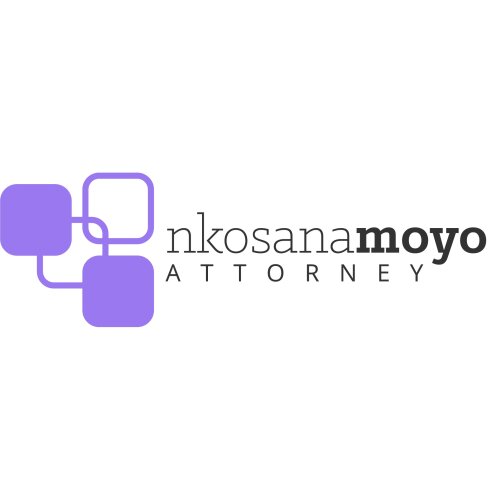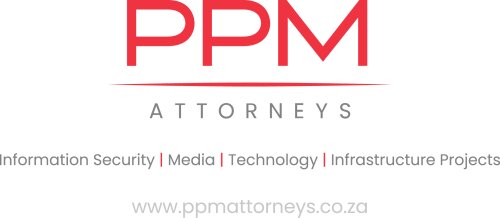Best Data Center & Digital Infrastructure Lawyers in South Africa
Share your needs with us, get contacted by law firms.
Free. Takes 2 min.
Or refine your search by selecting a city:
List of the best lawyers in South Africa
About Data Center & Digital Infrastructure Law in South Africa
Data centers and digital infrastructure are at the heart of South Africa’s growing information technology sector. They are responsible for storing, processing, and distributing large volumes of data that power businesses, government activities, and personal services. The legal framework surrounding data centers involves several aspects, including property law, telecommunications regulation, data protection, energy supply, and environmental compliance. As South Africa’s economy becomes increasingly digitalized, these legal considerations are more significant than ever for operators, developers, and users of data center services.
Why You May Need a Lawyer
There are several common situations where individuals or businesses may require legal assistance in the field of data center and digital infrastructure:
- Negotiating and drafting contracts for the construction, leasing, or operation of data centers.
- Ensuring compliance with data protection laws such as the Protection of Personal Information Act (POPIA).
- Dealing with licensing and regulatory compliance with the Independent Communications Authority of South Africa (ICASA).
- Resolving disputes over access to land, power supply, or telecommunications infrastructure.
- Assisting with mergers, acquisitions, or investments involving data center assets.
- Guidance on cross-border data transfers and compliance with international data standards.
- Advising on environmental and zoning regulations that affect data center operations.
Local Laws Overview
Several key legal frameworks apply to data centers and digital infrastructure in South Africa:
- Protection of Personal Information Act (POPIA): Regulates the collection, processing, storage, and safeguarding of personal data held in data centers.
- Electronic Communications Act: Governs the licensing and operation of telecommunications services and infrastructure, which are critical for data center connectivity.
- Occupational Health and Safety Act: Sets standards for workplace safety, including requirements for electrical and mechanical installations in data centers.
- Environmental laws: Data centers must comply with environmental regulations, including environmental impact assessments for new developments and energy usage requirements.
- Intellectual property regulations: Address the security and proprietary rights over software and data stored or processed in these facilities.
- Property and zoning laws: These affect where data centers can be built and the approvals required for operation.
Frequently Asked Questions
What legal permits are needed to establish a data center in South Africa?
Various permits may be required, including environmental impact assessment approvals, building permits from local municipalities, and compliance with safety regulations. Depending on the services offered, operator licensing from regulatory authorities such as ICASA may also be necessary.
How does POPIA affect data center operations?
POPIA requires data centers to ensure the secure processing and storage of personal information, implement adequate security measures, and respond to data breaches as outlined by the law.
Is foreign investment allowed in the South African data center sector?
Yes, foreign investment is permitted, but investors must comply with local company registration, tax laws, exchange control regulations, and sector-specific licensing requirements.
Are there restrictions on transferring data outside of South Africa?
Yes, POPIA restricts cross-border transfers of personal information unless the receiving country has similar data protection standards or explicit consent is obtained from the data subject.
What are typical contracts involved in data center projects?
Common contracts include service level agreements, co-location agreements, construction contracts, power purchase agreements, and network connectivity contracts.
Who regulates the telecommunications aspect of data centers?
The Independent Communications Authority of South Africa (ICASA) regulates telecommunications, including data transmission services provided by or to data centers.
What are the energy supply considerations?
Reliable energy supply is crucial. Operators often need to negotiate terms with local utilities, consider backup power solutions, and comply with energy efficiency or renewable energy requirements.
How is intellectual property protected in data centers?
Data centers must implement rigorous data security protocols to protect proprietary information and comply with intellectual property laws related to the software and digital content stored or processed on behalf of clients.
Can a landlord restrict a tenant from operating a data center in their building?
Yes, property lease agreements typically specify permitted uses and may restrict or require landlord consent for deploying data center operations, especially relating to equipment installation and energy use.
What are the environmental responsibilities of data centers?
Data centers must comply with South African environmental laws, which include conducting environmental assessments for new builds, managing electronic waste, and implementing energy-saving measures.
Additional Resources
The following organizations and resources can provide helpful guidance:
- Department of Communications and Digital Technologies
- Independent Communications Authority of South Africa (ICASA)
- Information Regulator of South Africa (for POPIA compliance)
- National Energy Regulator of South Africa (NERSA)
- South African Data Centre Association
- South African Institute of Electrical Engineers
- Local municipality planning offices (for zoning and building permits)
Next Steps
If you require legal assistance with any aspect of data center or digital infrastructure in South Africa, start by gathering all relevant documents and defining your specific needs. You should consult a legal professional experienced in this sector who can guide you through regulatory compliance, contract negotiations, dispute resolution, and other challenges. Reach out to specialist law firms or consult the above resources to identify qualified experts. Prompt legal advice can help you avoid costly mistakes and ensure your project complies with all relevant local laws and regulations.
Lawzana helps you find the best lawyers and law firms in South Africa through a curated and pre-screened list of qualified legal professionals. Our platform offers rankings and detailed profiles of attorneys and law firms, allowing you to compare based on practice areas, including Data Center & Digital Infrastructure, experience, and client feedback.
Each profile includes a description of the firm's areas of practice, client reviews, team members and partners, year of establishment, spoken languages, office locations, contact information, social media presence, and any published articles or resources. Most firms on our platform speak English and are experienced in both local and international legal matters.
Get a quote from top-rated law firms in South Africa — quickly, securely, and without unnecessary hassle.
Disclaimer:
The information provided on this page is for general informational purposes only and does not constitute legal advice. While we strive to ensure the accuracy and relevance of the content, legal information may change over time, and interpretations of the law can vary. You should always consult with a qualified legal professional for advice specific to your situation.
We disclaim all liability for actions taken or not taken based on the content of this page. If you believe any information is incorrect or outdated, please contact us, and we will review and update it where appropriate.
Browse data center & digital infrastructure law firms by city in South Africa
Refine your search by selecting a city.
















